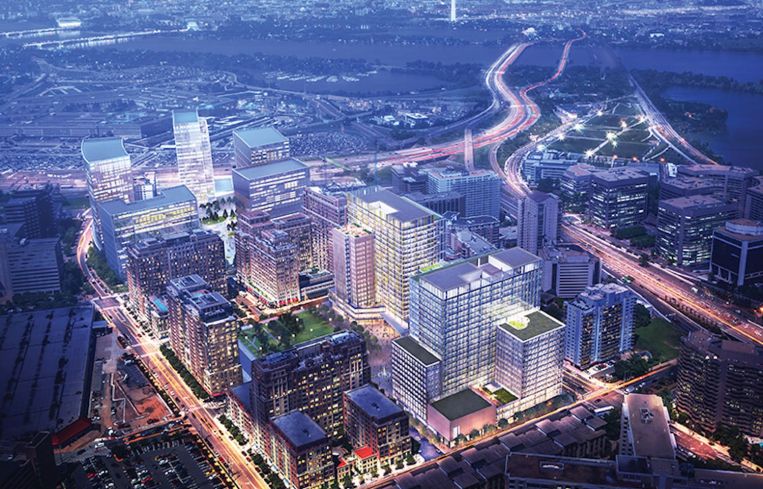JBG SMITH Teams With AT&T to Bring 5G to National Landing
By Keith Loria July 20, 2021 1:50 pm
reprints
The rise of fifth generation (5G) wireless systems is expected to have a tremendous impact on the commercial real estate market in the months and years ahead.
JBG Smith is looking to create the first “smart city” in National Landing — home to Amazon’s forthcoming HQ2 and Virginia Tech’s future $1 billion Innovation Campus — by partnering with at&t to deliver the first 5G Smart City at scale throughout Arlington and Alexandria, Va.
“5G and other connectivity enhancements planned for National Landing make it an ideal environment for companies innovating in growth industries like cloud computing, cybersecurity, [internet of things] and [artificial intelligence],” Evan Regan-Levine, JBG SMITH’s executive vice president, strategic innovation and research, told Commercial Observer.
“Eventually, every city in the country will benefit from connectivity like this. And we think National Landing will not only be the most connected innovation district in the country, but will also be the ‘living lab’ where innovators develop, test and showcase new technology that relies on next-generation connectivity.”
JBG SMITH has previously committed to bringing 5G to the National Landing area. Last August, the firm acquired seven blocks of Citizens Broadband Radio Service spectrum, stretching across Arlington and Alexandria, through a national Federal Communications Commission (FCC) auction for $25.3 million.
That paved the way for the AT&T partnership. Plus, because of National Landing’s portfolio of diverse buildings and open spaces, the partnership provides AT&T with an interconnected series of building side-mounts, street furniture and underground network infrastructure to support the rollout of the 5G network.
National Landing consists of 6.8 million square feet of existing office space and 2,856 residential units. Still to come are another 808 units of residential as well as 7.2 million square feet of additional commercial, multifamily and retail development opportunities.
“The COVID-19 pandemic taught us that connectivity is a crucial utility that needs to be reliable and ubiquitous, and we’ve also seen a massive acceleration in the blending of the physical and digital in daily life,” Regan-Levine said. “This network, and our CBRS spectrum, give the ability to provide a whole new suite of digital experiences that we’re developing with tech partners — all aimed at making life within the district as seamless as possible for all types of tenants.”
The first network infrastructure deployments are scheduled for the first half of 2022 and will expand with development of the community.



